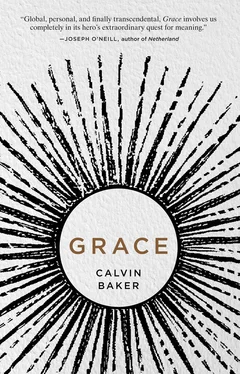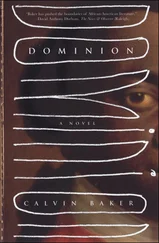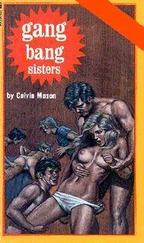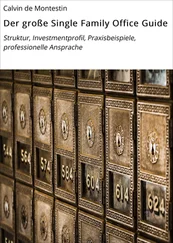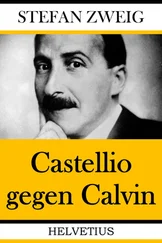The island was crisp from a breeze blowing in from sea, and the evening light the color of old cognac as I walked through the forested interior to their place. The lights from all the other houses were aflame, and every so often the sound of merriment was on the air. Other than that it was only the cerulean sky above.
The Saavardra spread was built facing the water, with a high, formal gate that led up a path on the island side through the landscaped grounds. It was overgrown with vegetation, blending so discreetly with the surroundings that I had not noticed it on my wanderings. There were two outer buildings immediately inside the gate, between them the blood-red clay of a tennis court, and then a wide expanse of manicured green lawn, still sodden from the last rain. There was no buzzer or knocker on the front door, and I rapped my knuckles against the hardwood, listening as it echoed inside the house.
“ Buenos tardes, Señor Roland. Bienvenido, ” Mrs. Saavardra greeted me. “You are just in time for drinks.”
She walked me through a set of pleasant rooms, grand in proportion but comfortably furnished in a way that attested to freedom from care. Out on the veranda at the front of the house, Mr. Saavardra sat alone smoking a cigar, listening to Beethoven’s Moonlight Sonata playing softly, and watching the birds flock in the diminishing light to nest.
“How good to finally meet you,” he said convivially.
“Thank you for the invitation,” I replied. “I hope I am not too early.”
“No. I am always happy whenever we have guests. You see, this house was my wife’s idea, and it is always lonely for me here.” He lowered his voice conspiratorially. “I detest nature.”
He was in his early seventies, with a dignified, easy manner which I liked immediately. “Why did you build the house, if you do not enjoy it?” I asked.
“Because my wife told me to,” he sighed, pouring two glasses of chilled red wine, and handing me one. “Men who want peace do ninety percent of what their wives ask them. The secret to happiness, of course, is finding a woman who wants from you mostly what you want from yourself.”
“And the other ten percent?”
“Five percent is eternal mystery,” he said. “The other five percent depends on the type of man you are.”
We drank our wine, which was good, and I complimented him on it.
“My father and uncles used to make this wine,” he told me, not without pride. “Now my cousins make it. The wine is the same. Only the people change.”
He freshened our glasses and we went down the veranda to the front lawn, where there was a pitch of dry sand and bocce balls, which we picked up and started playing.
“You are a journalist?”
“I was,” I said. “That part of life is behind me.”
“It is good for young men these days to have more than one career,” he nodded. “There is so much to be curious about. You are in your prime, and so you must embrace all of it. Young men should want to change the world. Old men need it to stay the same.”
“I try as best I can.”
“Don’t try, caballero . Do. You are in your prime, and master of your horse. You know its power, it knows the power of the rider, so will finally go wherever you instruct. Jump as you command. In five years more, if you have not already, you will have taught your horse to somersault and fly. Five years from there you will no longer need the horse.”
“What business are you in, Señor Saavardra?”
“My grandfather poured his life into a piece of land in a desolate part of the south. My father hired men to work the same land for him. Now my brothers manage a company exporting what comes from that land. When I turned seventeen I knew I did not want anything to do with the dirt. I left for university, and later joined a bank, where I spent the next forty years of my life buying and selling companies that farmed and mined the land.”
“Fate. Was it a good business for you?”
“It was not bad. I have no complaints. I married young, though, and now our children are all abroad and my wife somewhere made her own life, so now I am just another old man who does not know what to do with the days.”
“You did not have things you wished to do in your retirement?”
“No, that is a problem, you see. In my family the men all died young, and I never considered the idea of retirement. I know now that eventually I must end up back on the land.”
He had lived in Boston as a student, and when I asked if he enjoyed his time there he frowned faintly. “Yes. It was a very pleasant city,” he answered diplomatically. “Beautiful, clean. The people were a little racist, but what can you do? That was when I was there, of course. I do not know how fast such things change. Always they hear an accent and think certain things about you, and you are not supposed to notice, and if you say something they will deny it. Or they see that you have some money, and then you are a man, or only another dollar. They wish to do business, but it is a sullied affair by then and they do not even know it, so you must decide if it is worth it. Whether you will exercise your indifference, or decide to demonstrate the superiority of your discipline, or else show them the magnificence of your heart.”
“I am sorry you did not enjoy it.”
“No, on the contrary. I enjoyed my time there immensely. But I quickly saw the lie of the country, so was happy to return home, and then, for what I sought to do, and people I needed to prove myself to, no one would be impressed if I earned another degree or not, only that I had something of value to contribute. It was the middle of a financial crisis, and the problem I wished to solve was not theoretical, but that my people were suffering. I hope you do not mind my frankness.”
“I find frankness refreshing.”
“I am too old. I say what I think because it no longer matters to the world, or my place in it. When it mattered I kept it private. Do you think that was cowardly?”
“I think you did what you had to.”
He was beating me soundly at bocce, and we debated the relative merits of different countries as he told me how his name came about when his grandfather landed from Sardinia, he thought it sounded illustrious. It was an enjoyable conversation and I was sorry when it ended.
“I had better prepare the asador ,” he said, after taking the third game from me. “Thank you for humoring me.”
“You flatter me, señor .”
“No, caballero . I have been playing this game a long time.”
We went to a side porch, where he stirred the burning wood for the barbecue, before turning a crank to lower a heavy grille over the flames, and began placing thick cuts of meat over the fire, explaining to me where on the cow each cut was from, when he saw I took an interest, and that the wood was from a tree that had been cut down in his family’s vineyard. I admired the joy this simple pleasure gave him, and the care he took in what he was doing without being showy, as he distributed the embers and tested the heat of each part of the fire before placing the proper piece of meat over it. I realized it was part of his atomic unit of being in the world.
As he cooked, the other guests began arriving from the boat launch, and other houses, beginning with the Maldonados, who lived on one of the nearby islands. Both were psychiatrists in their early fifties who radiated intelligent wakefulness. “It is a mixed marriage, and shouldn’t have lasted this long,” Mrs. Maldonado said slyly, after we were introduced. “Pablo’s a Lacanian. I’m a Jungian.”
After chatting awhile, she went inside to seek out Mrs. Saavardra, and Mr. Maldonado came to the grill, taking a glass of wine with us around the fire, and asking how I was enjoying the country.
Читать дальше
